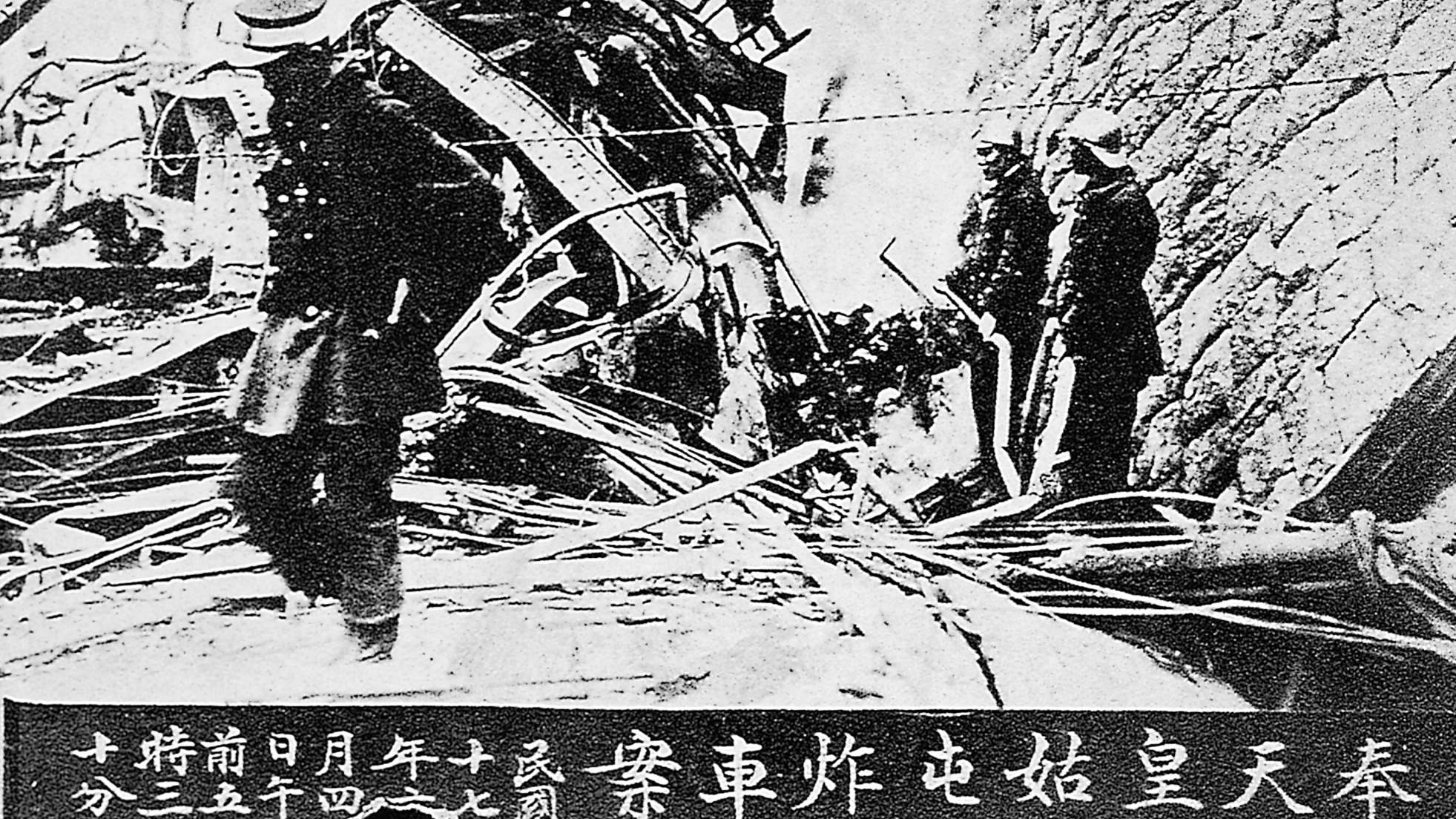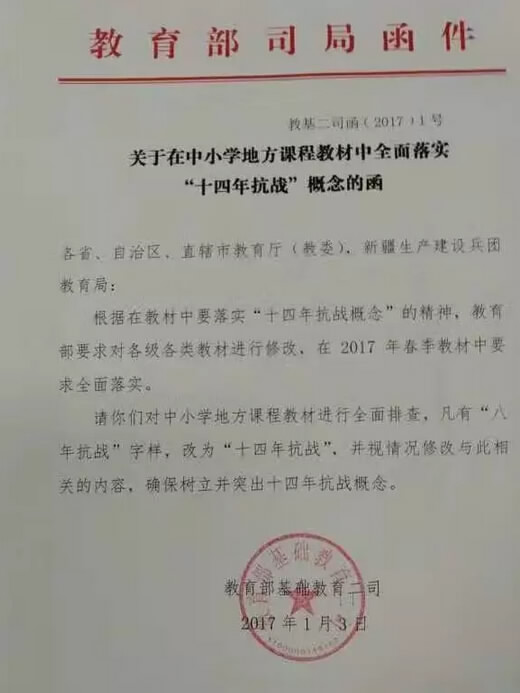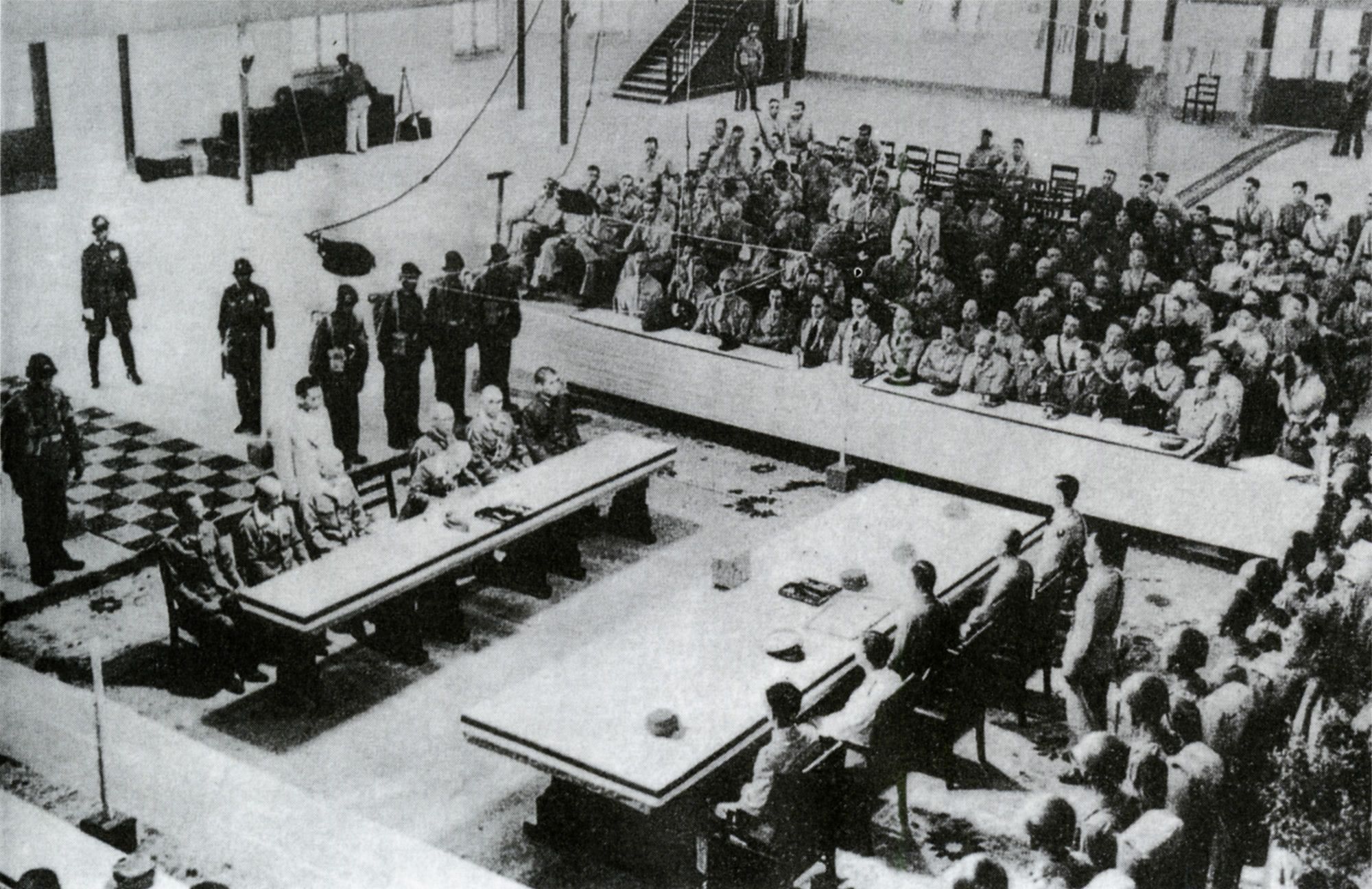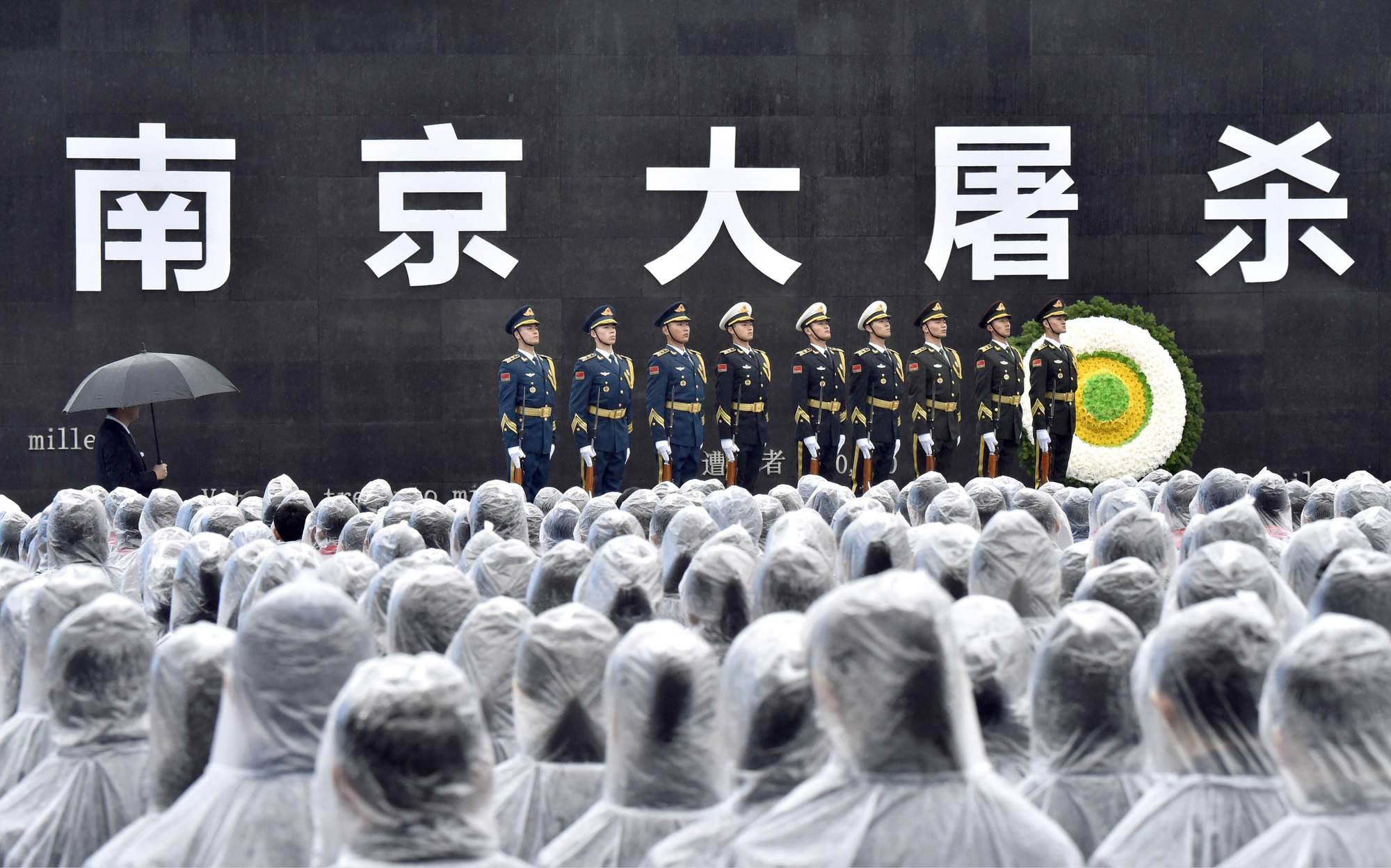
China
12:35, 11-Jan-2017
Chinese textbooks to revise length of Anti-Japanese war
Updated
10:33, 28-Jun-2018

China's school textbooks will revise the current wording on the Chinese People’s War of Resistance against Japanese Aggression, adding six years to the anti-fascist war.
The Ministry of Education recently released a document, demanding education departments at all levels conduct an overhaul of all textbooks to remove the old phrase of “Eight-year Chinese People's War of Resistance against Japanese Aggression”, which regarded the Lugou Bridge (Marco Polo Bridge) Incident on July 7, 1937 as the date when Japan’s full-scale invasion of China began.

People's Daily Photo
People's Daily Photo
The revised version, which will be applied from the beginning of the spring semester, acknowledges the Mukden Incident on September 18, 1931 as the starting point of Japanese invasion. The Mukden Incident, also known as the Manchurian Incident, saw Japanese troops stage a bombing of their own railway line near present-day Shenyang, while blaming the attack on China, and using it as a pretext to invade northeast China, where it established the puppet state of Manchukuo.
Although “Eight-year Chinese People’s War of Resistance against Japanese Aggression” was previously the accepted term, research on wartime history in recent years has shown that it’s more historically accurate to frame the Anti-Japanese war within a 14-year period, said Xu Yong, history professor with Peking University.

Representatives of the Japanese government and armed forces formally surrendered in China by signing the Instrument of Surrender in Nanjing on September 9, 1945./CFP Photo
Representatives of the Japanese government and armed forces formally surrendered in China by signing the Instrument of Surrender in Nanjing on September 9, 1945./CFP Photo
In contrast to Japan’s efforts to play down its wartime atrocities in public school textbooks, countries that were victims of its aggression during the war have looked to keep alive the humiliating history of being bullied by Japanese invaders over seven decades ago, with the aim of preventing any further military conflict in future.

A memorial ceremony is held in Nanjing, China, on Dec. 13, 2016, for victims of the 1937 massacre committed by Japanese troops in the eastern Chinese city./CFP Photo
A memorial ceremony is held in Nanjing, China, on Dec. 13, 2016, for victims of the 1937 massacre committed by Japanese troops in the eastern Chinese city./CFP Photo
More than 35 million Chinese were killed or injured in the Anti-Japanese war, representing one-third of all those who lost their lives or were injured during the Second World War, according to incomplete official statistics.

SITEMAP
Copyright © 2018 CGTN. Beijing ICP prepared NO.16065310-3
Copyright © 2018 CGTN. Beijing ICP prepared NO.16065310-3